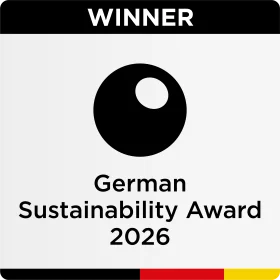Sustainable tourism: Can tourism be sustainable?

Sustainable tourism. Is that even possible? In this blogpost we want to share our thoughts with you about this important topic and are happy to discuss with you.
The tourism industry is often critized. For example, at least 8% of global greenhouse gases are attributable to the tourism industry. 5% solely caused by transportation in the tourism sector. In addition, there are other negative impacts, such as overuse of natural resources, stress and destruction of ecosystems, as well as socio-cultural conflicts and human rights violations, which international tourism can exaberate. In addition, in many cases, the local population rarely benefits from the income generated by tourism, as much of it doesn`t remain in the region but is extracted by foreign investors. Mass tourism in particular has accelerated this problem enourmously in recent years.
Despite these effects, the travel industry is one of the most significant economic sectors of our time. In 2018 alone, it contributed more than 10% to global economic output, and the trend is rising. In 2018, over 1.4 billion1 international tourist arrivals were recorded with revenues of approximately US$1,450 billion dollars2. Moreover, one in ten jobs worldwide is related to the tourism industry and therefore provides an important basis for the livelihoods of many people. This enourmous potential can therefore be a key to combinating global inequalities and for a sustainable development. The Secretary General of the United States once put it this way:
“Every day, more than 3 million tourists cross international borders. Every year, almost 1.2 billion people travel abroad. Tourism has become a pillar of economies, a passport to prosperity, and a transformative force for improving millions of lives. The world can and must harness the power of tourism as we strive to carry out the 2030 Agenda for Sustainable Development.” - António Guterres, United Nations Secretary-General
We must therefore succeed in harnessing this economic power to drive forward the achievement of the Sustainable Development Goals. An ambitious goal and long way to go. But every day we try to take small steps towards this goal.
What does sustainability actually mean?
Sustainability is on everyone’s lips. However, many do not even know what exactly is behind this concept. That’s why we’re taking a closer look at it: Although sustainability is often used as a synonym in our minds for environmental friendlieness, it’s actually about the balance between the three dimensions of ecological, social and ecological sustainability.
In general, sustainability means that resources are used in a system in such a way that they are not exhausted, but that the system can exists in this form in the long term. Sustainability in the sense of sustainable development is therefore defined by the UN World Commission on Environment and Development as development that meets the “[…] needs of the present without comprosing the ability of future generations to meet their own needs.”
How does socialbnb’s concept impact these three dimensions?
The mission of socialbnb is to provide long-term funding for social and environmental projects. These projects already have a positive impact on the social or economic component of sustanabilty. Let’s look at an example: a reforestation project in Spain aims to plant a mixed forest in order to make an ecological contribution. At the same time, they give workshops at local schools and raise awareness about the importance of forests for our ecosystems. The project, like many others, is financed by donations from private individuals.
The problem is that there are not enough people to take care of fundraising and they do not have the resources to implement large marketing or fundraising campaigns. As a result, fewer trees can be planted in the coming year and fewer schools can be visited. The social and ecological added value therefore decreases.
The concept of socialbnb is to help link such projects with the economic power of tourism and integrate them into its value creation. The project from Spain accomodates travelers in accommodation near the reforested forest and thus receives additional income.
In this way, the concept of socialbnb has an impact on the economic component. This makes the financing of the project work less dependent on one single source of income, donations, and the projects can further improve their output on the social or ecological side. With the additional income, the project can educate more children and hire more people to plant even more trees.
Through the socialbnb concept, the project work of the partners can not only be successful in the social and ecological dimension, but the project work is also financed in a sustainable way. This represents the foundation on which the project work is based upon.
But will this also make tourism more sustainable?
Indirectly, yes! Of course, it would be even more resource-efficient if travelers simply stayed at home. After all, no emissions would then be emitted for transportation at all. However, in view of the increasing number of travelers worldwide, this is simply an unrealistic demand. The majority of people still enjoy traveling. It would also ignore the millions of people who depend on the industry for their livelihoods. Therefore, tourism needs to be changed in a way that benefits the region being visited- because then the industry can be made sustainable.
However, it must be sensitized to travel slower and more consciously. Instead of rattling off various sights in a short time and looking for a “quick rest”, it is better to stay longer in one place.
With socialbnb we want to offer a way how at least the overnight stay, when already traveling, provides an added value for the region. The alternative is usually a hotel or hostel. However, these often have no social or ecological focus. The money ends up in the pockets of large investors.
An overnight stay at a project therefore offers an added value for the region you are visiting. In addition, you not only get to know the exciting stories of committed people, but also actively take the time to learn more about the social or environmental challenges on site. The goal of socialbnb is also to create a new awareness among travelers and in the tourism industry.
Do i really have to fly to this?
socialbnb starts with accommodation sector and wants to offer an alternative here.
If you have to fly to a destination, then at least the region should benefit and not be harmed – e.g. by visiting a project that provides an ecological or social added value. Nevertheless, for our vision of a truly sustainable tourism that benefits everyone, transportation must of course also be taken into account. We are therefore actively promoting the expansion of destinations within Europe that are accessible to most of our existing travelers without the need for air travel. On the other hand, we also want to be an alternative in the respective countries and promote local tourism. To this end, we are actively trying to raise awareness also in the regions where we have accommodations in order to promote domestic tourism and thus minimize transport emissions.
In the long term, we also want to offer alternatives for this on our platform so that the entire trip can be made as sustainable as possible and have a positive impact on a local level.

socialbnb as a Company!
Sustainability is firmly anchored in our DNA not only in our concept but also as a company. Therefore, we are constantly trying to improve internally as well and build socialbnb as a sustainable company. In all areas, we have committed ourselves to working in a resource-saving manner, using only environmentally friendly materials and making our impact on the environment as climate-friendly as possible. In addition, we treat our employees fairly and aim to be able to finance ourselves independently in the long term and not to be dependent on external financiers.
As a young company, we cannot implement everything at the same time. But we strive to improve step by step and give you an overview of our internal measures here on the blog.
So far, there are still few opportunities for travelers to find suitable offers in different destinations that promote sustainable tourism, which drives development and benefits all stakeholders, especially the local population. We want to change that. Because sustainability and travel do not have to be mutually exclusive and tourism that benefits everyone is possible!
Let’s prove it together!
What are your thoughts on the topic? Do you have any feedback or ideas on what we can do better? We are looking forward to your feedback.
Want more tips on impact travel?
Then sign up for our newsletter and receive exciting tips and new accommodation suggestions on a regular basis.
Sign up





